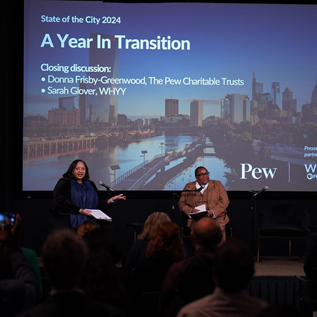Pew Testifies on Potential Health Effects of Proposed Washington, D.C., Transit Program
Subsidies could make transportation costs more equitable across the city
On Feb. 23, Stefanie Carignan, a senior associate with The Pew Charitable Trusts’ Health Impact Project, testified at a public hearing of the Washington, D.C., Council’s Committee on Transportation and the Environment on the potential health implications of Bill 24-0429, the Metro for D.C. Amendment Act of 2021. She discussed the evidence base regarding public transit use and physical activity and links between free fare or fare discount programs and transit ridership. These remarks also noted that the bill would most likely benefit residents with lower incomes and older adults with fixed incomes.










